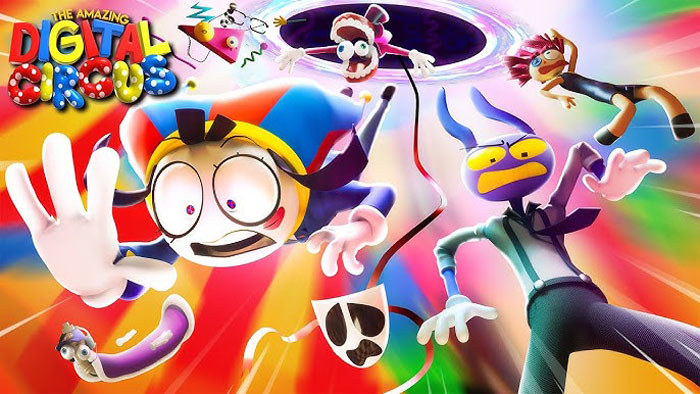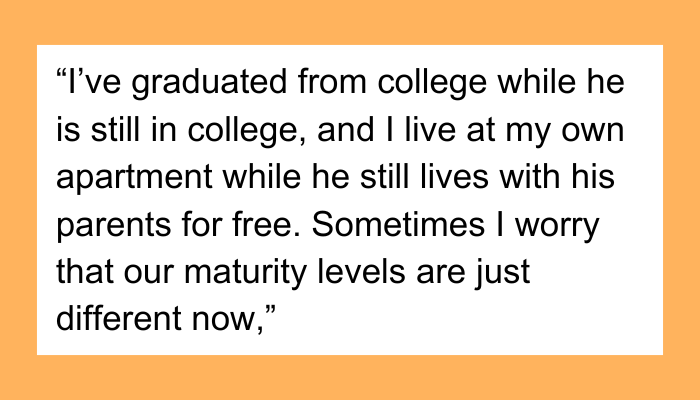AITA for Refusing to Watch My Autistic Friend’s Favorite Show?
This is a nuanced situation where both neurodivergent identities — ADHD and autism — intersect with growing pains, emotional maturity, and boundaries in friendships. OP (21F) and her best friend (21M) have been close since childhood, forming a bond rooted in being each other’s safe space when the world found them “too much.” Now, as adults, their developmental trajectories seem to be diverging — OP feels she’s matured, gained independence, and perhaps emotionally outpaced her friend. That’s not a value judgment — just an honest observation.
The drama kicked off when her friend, deeply obsessed with the viral animated web show “The Amazing Digital Circus,” urged her to watch it. She politely declined, but he didn’t take it well. After repeatedly pushing her, he then turned around and insulted her favorite YouTuber in a tit-for-tat moment of pettiness. When she confronted him, he admitted he was lashing out because she wouldn’t watch his show. It felt like emotional blackmail disguised as shared interest — and understandably, OP felt confused and hurt. The situation sparked questions: is she heartless for saying no? Is he entitled for expecting yes?
What makes this story even more wholesome is the follow-up edit: after some emotional airing out, both apologized, and they agreed to swap interests — a book chapter for an episode. A respectful middle ground that not only salvaged the friendship but reinforced it. That’s real emotional growth.
Friends should be able to express their views freely to one another without the fear of criticism

The poster shared that she had attention deficit hyperactivity disorder, and her best friend from second grade had autism










Okay, let’s get real. This isn’t just about a show. It’s about communication, expectations, and boundaries between friends — especially when neurodivergence is involved on both sides.

1. What’s a “Special Interest” in Autism?
In autism, special interests are more than just hobbies. They’re deep, immersive passions — think of them like emotional anchors. According to the Autism Research Institute, special interests can be therapeutic and give people a sense of stability and identity. They also help with emotional regulation and social connection — that’s why your friend probably shares memes, talks about the show nonstop, and gets emotionally attached to it. For him, it’s not “just a show,” it’s his thing.
“The Amazing Digital Circus” specifically has become a viral comfort watch for many autistic viewers. It’s loud, chaotic, surreal, and emotionally intense — traits that resonate with neurodivergent audiences because it mirrors the sensory overwhelm and internal monologue many experience daily. Articles from Polygon and Kotaku highlighted how the show has become a niche haven for people who feel out of place in reality.
So when you said “nah, not my thing,” even politely, it might’ve felt like a rejection of him, not just the show. That’s not your fault — it’s about how he internalized it. But it’s good context.
2. Why You’re NOT the A-hole
Let’s be clear: you have every right to say no.
Friendship doesn’t mean performing someone’s interests. And it especially doesn’t mean accepting guilt-tripping or petty revenge when you express a boundary.
Even if he’s autistic — and even if the show is a core part of his identity right now — he still has the capacity to learn, respect boundaries, and handle disappointment without lashing out. Neurodivergence explains behavior; it doesn’t excuse it.
You didn’t mock the show. You didn’t shame him for liking it. You were honest — “Hey, this isn’t really something I’d watch organically.” That’s not disrespect. That’s just personal taste.
The moment he mocked your favorite YouTuber out of spite? That’s where the red flag waves. That wasn’t an autism moment — that was a hurt-feelings moment handled poorly. And he admitted it.
3. Emotional Maturity Drift in Friendships
Let’s talk about something that hits a lot of friendships in the early 20s: maturity drift. One person might be living alone, working, budgeting groceries; the other’s still at home, maybe struggling with executive function or parental dependence. That doesn’t make one person “better” than the other, but it can create friction.
You’ve moved on to a different phase of life. You may be discovering deeper emotional regulation, nuanced boundaries, less reactive communication. He may not be there yet — and that can be frustrating. But sometimes, that frustration comes from mismatched tools, not malice.
Still, that’s not your burden to fix. You can show compassion and protect your peace.

4. How To Navigate Conflicts Over Neurodivergent Interests
You actually handled this incredibly well — and your update proves that. But for anyone else reading and dealing with similar stuff, here’s how to navigate those high-pressure “just try it!!” moments:
- Use “Me-centered” language: Instead of “I don’t like that,” say “That kind of media usually overwhelms me” or “I have a hard time staying engaged with that genre.”
- Offer compromise, not rejection: “I probably wouldn’t binge the whole thing, but I can watch a clip if you want to share your favorite moment.”
- Set time boundaries: “Hey, I know you love it, but can we talk about something else for a bit? I’m on media overload.”
On the flip side, it helps if the autistic friend knows:
- Not everyone will share your passions. And that’s okay.
- Respecting ‘no’ is part of friendship. It’s not rejection. It’s autonomy.
- Reciprocation isn’t always tit-for-tat. Your friend not watching your favorite thing doesn’t mean they love you less.
5. You Did Everything Right — Especially the Apology Round
The edit to your post shows maturity on both your ends. He apologized for being pushy and petty. You apologized for unintentionally brushing off something important to him. And most importantly, you reached a mutual understanding.
He’ll read a book you love. You’ll give an episode a try. That’s friendship in action — not performance, but mutual curiosity. That’s what emotional growth looks like.
And the fact that you’re still committed to this friendship — despite the internet yelling in all directions — shows a level of loyalty and care that’s honestly admirable.
Some folks felt that the guy should be put in his place for being so petty, while others urged the poster to show more grace toward him





You’re not the A-hole. You’re just navigating a friendship with a lot of emotional history, neurodivergent complexity, and evolving life phases. It’s okay to be confused. It’s okay to set boundaries. And it’s okay to still want to make it work — as long as both sides are learning and adjusting.
The internet can be quick to say “cut them off!” but real friendships aren’t disposable. They’re messy. They’re weird. But when both parties care enough to grow, they’re also worth it.
Want me to help draft a message you could use next time this kind of thing pops up — or explore more neurodivergent friendship guides? I got you.

